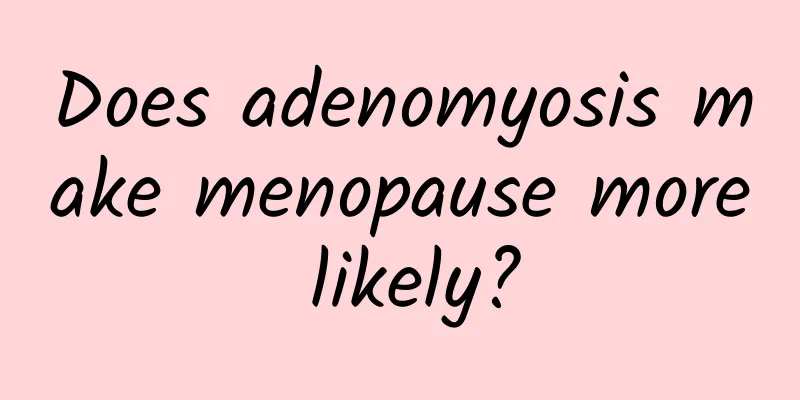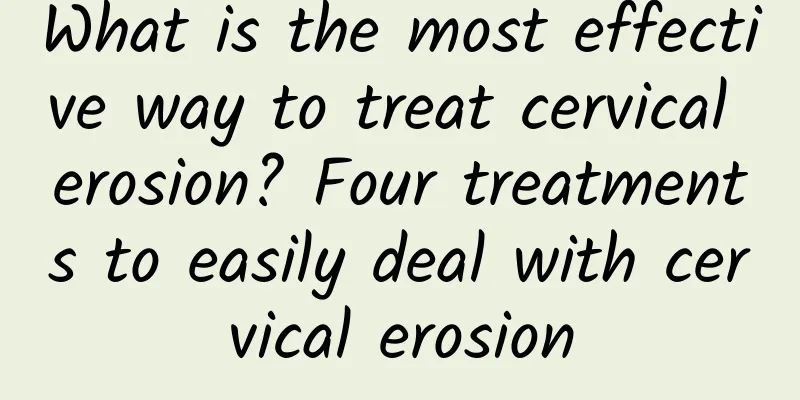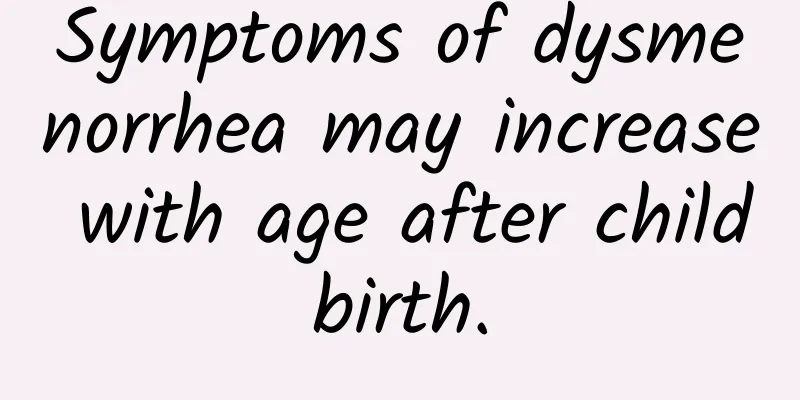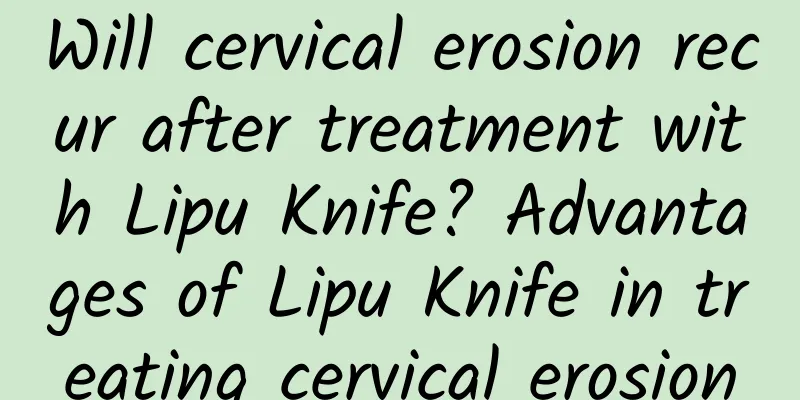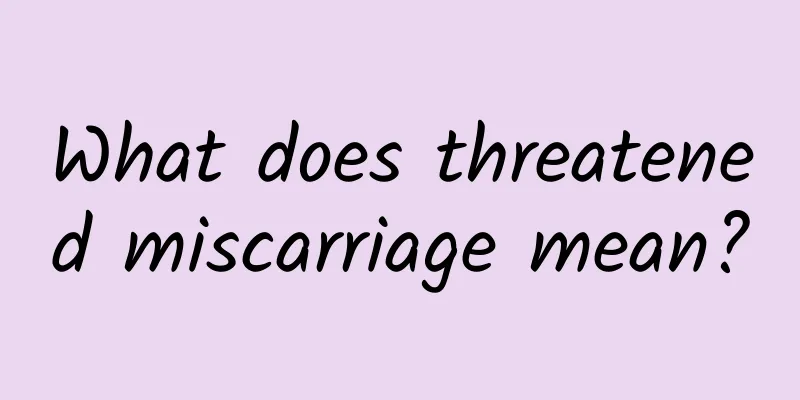What foods should not be eaten for uterine fibroids? What foods are good for uterine fibroids?
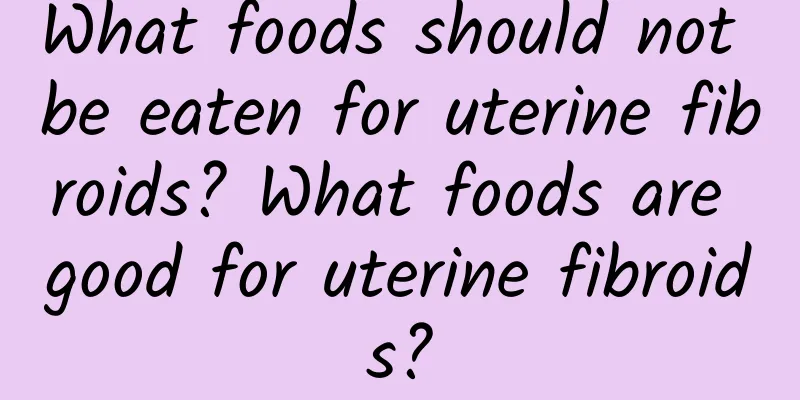
|
Uterine fibroids are a common gynecological disease. Patients need to pay attention to their diet in daily life and avoid eating some foods that have adverse effects on the disease. At the same time, some foods can be beneficial to uterine fibroids and help relieve symptoms. The following will introduce the foods that cannot be eaten and the foods that are beneficial. 1. Foods that cannot be eaten 1. Spicy food: Patients with uterine fibroids should avoid eating spicy foods, such as peppers, peppers, ginger, etc. These foods will stimulate uterine blood circulation and aggravate the development of uterine fibroids. 2. High-sugar foods: High-sugar foods can increase blood sugar levels and lead to obesity. Obesity is one of the causes of uterine fibroids, so patients should avoid excessive intake of high-sugar foods, such as candy, chocolate, etc. 3. Coffee and strong tea: Coffee and strong tea contain caffeine, which will stimulate the growth of uterine fibroids, so patients should try to avoid consuming these drinks. 2. Beneficial Foods 1. High-fiber foods: High-fiber foods help promote intestinal peristalsis and aid defecation. The fiber in food can help regulate hormone levels and slow the development of uterine fibroids. Common high-fiber foods include oats, whole wheat bread, green leafy vegetables, etc. 2. Foods rich in vitamin C: Vitamin C has antioxidant effects and can help strengthen the immune system. Eating more foods rich in vitamin C, such as oranges, lemons, broccoli, etc., is beneficial for patients with uterine fibroids. 3. Foods rich in anti-inflammatory substances: Uterine fibroids are often accompanied by inflammation, so eating some foods rich in anti-inflammatory substances can help reduce the symptoms of inflammation. For example, fish is rich in omega-3 fatty acids, and olive oil and nuts contain omega-6 fatty acids, all of which have anti-inflammatory effects. 4. Low-salt food: Excessive intake of salt will lead to water and sodium retention, aggravating the symptoms of uterine fibroids. Therefore, patients with uterine fibroids should avoid eating too salty foods and can choose low-salt foods. In short, for patients with uterine fibroids, a reasonable diet is an important part. Avoiding irritating foods, consuming more high-fiber foods rich in vitamin C and anti-inflammatory substances, and limiting salt intake are all helpful in relieving the symptoms of uterine fibroids. In addition, everyone's physical condition is different. It is best to consult a professional doctor on diet and develop a diet plan that suits you. Through good eating habits, patients can actively deal with uterine fibroids and improve their own conditions. |
Recommend
Women over 30 should be alert to uterine fibroids!
Uterine fibroids are the most common benign tumor...
Let's take a look at the reasons why unmarried women suffer from adnexitis
What are the causes of adnexitis in unmarried wom...
What is the degeneration of uterine fibroids?
What is the degeneration of uterine fibroids? Bec...
Ectopic pregnancy is more likely to occur in menopausal women who do not pay attention to contraception
Contraception is necessary for menopausal women. ...
Is cervical precancerous lesion cancer?
Cervical precancerous lesions are not cancerous, ...
What are the symptoms of miscarriage? There are 3 major symptoms
Many people lack knowledge about miscarriage, so ...
Uterine prolapse and weakened pelvic floor muscles... 3 Kegel exercises to strengthen
Don’t underestimate the role of your pelvic floor...
Experts introduce three common methods to prevent dysmenorrhea
Dysmenorrhea is a gynecological disease that ofte...
Analyze the multifaceted causes of clinical pelvic inflammatory disease
In recent years, the incidence of pelvic inflamma...
Three dietary treatments for ovarian cyst patients
Patients with ovarian cysts should strengthen the...
What are the clinical manifestations of cervical erosion in women? Clinical manifestations of three degrees of cervical erosion
Cervical erosion is a gynecological disease. Wome...
There are many things women should pay attention to after painless surgery.
There are many things to note when having an abor...
Breakfast cereal + juice may cause blood sugar fluctuations and may make you fat
Cereals are a quick and convenient breakfast choi...
What are the dangers of menopausal syndrome in women?
Menopausal syndrome is a series of symptoms cause...
What preparations do you need to make before a curettage? How long does a curettage take?
The main purpose of curettage is to further remov...
